Freedom Of Conscience Quotes
Quotes tagged as "freedom-of-conscience"
Showing 1-11 of 11
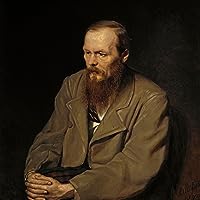
“There is nothing more alluring to man than freedom of conscience, but neither is there anything more agonizing.”
― The Brothers Karamazov
― The Brothers Karamazov
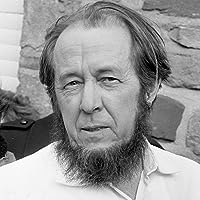
“Let us put it generally: if a regime is immoral, its subjects are free from all obligations to it.”
― The Gulag Archipelago, 1918-1956: An Experiment in Literary Investigation, Books V-VII
― The Gulag Archipelago, 1918-1956: An Experiment in Literary Investigation, Books V-VII
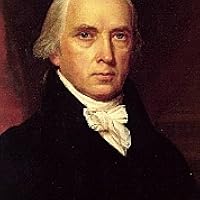
“The Religion then of every man must be left to the conviction and conscience of every man; and it is the right of every man to exercise it as these may dictate. This right is in its nature an unalienable right. It is unalienable, because the opinions of men, depending only on the evidence contemplated by their own minds cannot follow the dictates of other men: It is unalienable also, because what is here a right towards men, is a duty towards the Creator. It is the duty of every man to render to the Creator such homage and such only as he believes to be acceptable to him.”
― A Memorial And Remonstrance, On The Religious Rights Of Man: Written In 1784-85
― A Memorial And Remonstrance, On The Religious Rights Of Man: Written In 1784-85
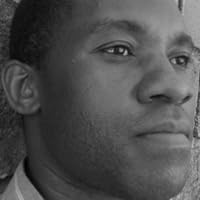
“The dictator says "You are allowed to think as you want" but never write it down or talk about it. If you cross these borders we cannot guarantee your security”
― The Great Pearl of Wisdom
― The Great Pearl of Wisdom
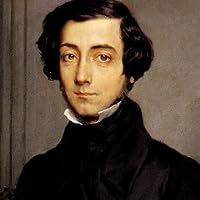
“Under the absolute sway of an individual despot the body was attacked in order to subdue the soul, and the soul escaped the blows which were directed against it and rose superior to the attempt; but such is not the course adopted by tyranny in democratic republics; there the body is left free, and the soul is enslaved.”
― Democracy in America
― Democracy in America
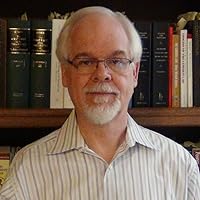
“Roger Williams died sometime during the early months of 1683. Some of what he said and wrote during his lifetime belongs to the seventeenth century. But much of his historical and philosophical record speaks to us across the centuries.”
―
―
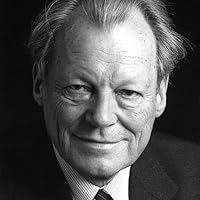
“Wenn ich sagen soll, was mir neben dem Frieden wichtiger sei als alles andere, dann lautet meine Antwort ohne Wenn und Aber: Freiheit. Die Freiheit für viele, nicht nur für die wenigen. Freiheit des Gewissens und der Meinung. Auch Freiheit von Not und von Furcht.“
("If I am to say what, besides peace, is more important to me than anything else, my unconditional answer is: Freedom. Freedom for the many, not merely for a few. Freedom of conscience and of opinion. And also freedom from poverty and fear.")
Speech before an extraordinary convention of the Social Democratic Party in Bonn, Germany, June 14, 1987”
―
("If I am to say what, besides peace, is more important to me than anything else, my unconditional answer is: Freedom. Freedom for the many, not merely for a few. Freedom of conscience and of opinion. And also freedom from poverty and fear.")
Speech before an extraordinary convention of the Social Democratic Party in Bonn, Germany, June 14, 1987”
―
“La scuola può educare allo spirito del dialogo non solo in quanto ponga la riflessione su di esso al centro del suo contenuto didattico, ma anche e soprattutto attraverso una diversa via, che le è peculiare. Nella scuola meritevole di questo nome non soltanto si studia la civiltà del dialogo. La si mette in atto: e quindi ci si allena progressivamente ad essa. Il cattivo maestro insegna predicando: il buon maestro conversa e discute con i suoi scolari, perfino quando spiega le cose meno controvertibili, come certe lezioni elementari di aritmetica o di grammatica.”
― Logo e dialogo; saggio sullo spirito critico e sulla libertà di coscienza
― Logo e dialogo; saggio sullo spirito critico e sulla libertà di coscienza

“We claim the privilege of worshiping Almighty God according to the dictates of our own conscience, and allow all men the same privilege, let them worship how, where, or what they may.”
―
―
“War represents the seemingly endless conflict between governments seeking power and control versus individual persons seeking freedom and liberty.”
― Dead Toad Scrolls
― Dead Toad Scrolls
“I have long been moved by Rosa Luxemburg's assertion that 'freedom is always the freedom to think otherwise,' and thus I've been attracted to contrarians, to people whose instinct is to go against the grain of officially accredited views - especially those accredited within their own circle of progressive thinkers. This has its dangers, to be sure.”
― The Tyranny of Virtue: Identity, the Academy, and the Hunt for Political Heresies
― The Tyranny of Virtue: Identity, the Academy, and the Hunt for Political Heresies
All Quotes
|
My Quotes
|
Add A Quote
Browse By Tag
- Love Quotes 97.5k
- Life Quotes 76k
- Inspirational Quotes 73k
- Humor Quotes 43.5k
- Philosophy Quotes 29.5k
- Inspirational Quotes Quotes 27k
- God Quotes 26k
- Truth Quotes 23.5k
- Wisdom Quotes 23.5k
- Romance Quotes 23k
- Poetry Quotes 22k
- Death Quotes 20k
- Happiness Quotes 18.5k
- Life Lessons Quotes 18.5k
- Hope Quotes 18k
- Faith Quotes 18k
- Quotes Quotes 16.5k
- Inspiration Quotes 16.5k
- Spirituality Quotes 15k
- Religion Quotes 15k
- Motivational Quotes 15k
- Writing Quotes 15k
- Relationships Quotes 14.5k
- Life Quotes Quotes 14k
- Love Quotes Quotes 14k
- Success Quotes 13.5k
- Time Quotes 12.5k
- Motivation Quotes 12k
- Science Quotes 11.5k
- Motivational Quotes Quotes 11.5k

